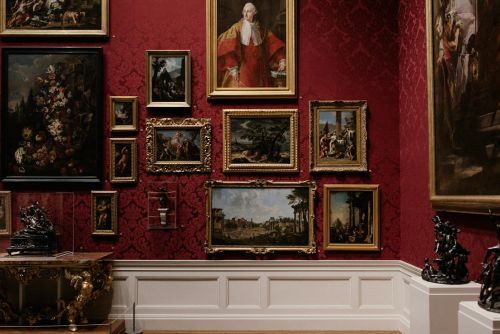

The 18th century was a revolutionary period for Britain. During this time, the country rose to become a dominant power, and a lot of the reasons behind this success was the use of trade routes. Britain had established itself as being a global empire with significant progress made towards industrialization.
Exploring the Impact of Trade
During this period, Britain traded with a number of colonies, including the Americas. British trade also expanded to Asia, with strong connections to France. Some of the biggest French imports included textiles, sugar, coffee, and indigo, but that wasn’t all. 18th century France, through trade and the sharing of ideas also helped to spur the art movement known as Neoclassicism. This had a huge impact on British artists, including Benjamin West.
The transmission of culture from Europe also had a large impact on the British Isles. For example, roulette was also devised in 18th-century France, thanks to Blaise Pascal and his search for a perpetual motion machine. The roulette mechanism was invented in 1720, and since then, has had a major impact on the UK economy. Now, roulette continues to develop, with the development of online roulette variants like Penny Roulette. Games like this use very small betting amounts, which help to reflect the earlier versions of the game throughout history. Titles like this also use a single green zero, which reflects the European game of roulette, showing how far-reaching its influence has been over the years.
When you break it down, neither the introduction of classic roulette, nor the neoclassicism art movement would have happened if Britain didn’t have such a strong trade network, this helped to facilitate the sharing of ideas, and new approaches thanks to the input from different civilizations.

Trade Led to A Boom in the British Population
In 1688, Britain’s population stood at around 5 million. The economy was also very much agricultural. Colonies in North America and Barbados were starting to expand, with the middle class quickly emerging. This helped to support the growing trade industry, with textiles growing in popularity. Tea was also imported from Bengal, and during this time, even though there was a militaristic rivalry, Britain retained good trade relations. Britain maintained good trade relations with France, importing wine and silk, along with numerous other goods. This led to a rapid expansion of Britain’s influence across the globe, which you can find out more about on the Map as History website. After the Napoleonic Wars, Britain soon had one of the biggest empires in history, with the population growing to an astounding 12 million. All of this was a result of the extensive trade networks that had been forged, with an influx of luxury products that helped Britain make new relationships with other countries.
When you break it all down, it’s not hard to see why this was such a revolutionary period for Britain and how the extensive trade connections helped to pave the way for the British Empire. The connections from France played a huge role, but with that said, having territory in the Americas, along with expansion across Asia played a significant part in Britain and the foothold that it had on the global stage, especially with trading opportunities.


